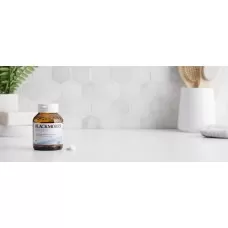ZINC by Blackmores

- Brand: BLACKMORES
- Product Code: NOUR033
- Reward Points: 64
- Availability: In Stock
- Warehouse Asia 1
- $63.75
- Ex Tax: $63.75
- Price in reward points: 638
Tags: Blackmores ZINC
Buy ZINC by Blackmores
Combination:
Zinc by Blackmores combines the essential mineral zinc with other beneficial ingredients to enhance absorption and efficacy. Each tablet contains:
Zinc (as Zinc gluconate) 30 mg. Additional ingredients: Magnesium phosphate, calcium hydrogen phosphate, and potassium iodide
Benefits:
- Immune Support: Zinc is known for its role in boosting the immune system, helping your body to fight off infections and illnesses more effectively.
- Skin Health: Promotes healthy skin by supporting cell growth and repair, making it beneficial for those with acne and other skin conditions.
- Antioxidant Properties: Zinc acts as an antioxidant, protecting your cells from damage caused by free radicals.
- Wound Healing: Enhances the body’s ability to heal wounds, making it a valuable supplement for recovery and repair.
- Cognitive Function: Supports cognitive health and may improve memory and learning abilities.
Cycle:
Recommended Dosage: Adults should take one tablet daily with a meal, or as directed by a healthcare professional. Cycle Duration: It's generally safe for continuous use, but it's advisable to consult with a healthcare provider to determine the appropriate duration based on individual health needs and conditions. Long-Term Use: Periodic assessment by a healthcare provider is recommended if using for extended periods to avoid potential zinc toxicity.
Side Effects:
- While Zinc by Blackmores is generally well-tolerated, some individuals may experience side effects, including:
- Nausea: Taking zinc on an empty stomach can cause nausea. It’s best taken with food.
- Digestive Issues: Possible mild gastrointestinal disturbances such as stomach cramps or diarrhea.
- Metallic Taste: Some users may experience a temporary metallic taste in the mouth.
Copper Deficiency: Prolonged high-dose zinc supplementation can interfere with copper absorption, potentially leading to a deficiency. It’s essential to monitor intake and consult with a healthcare provider.